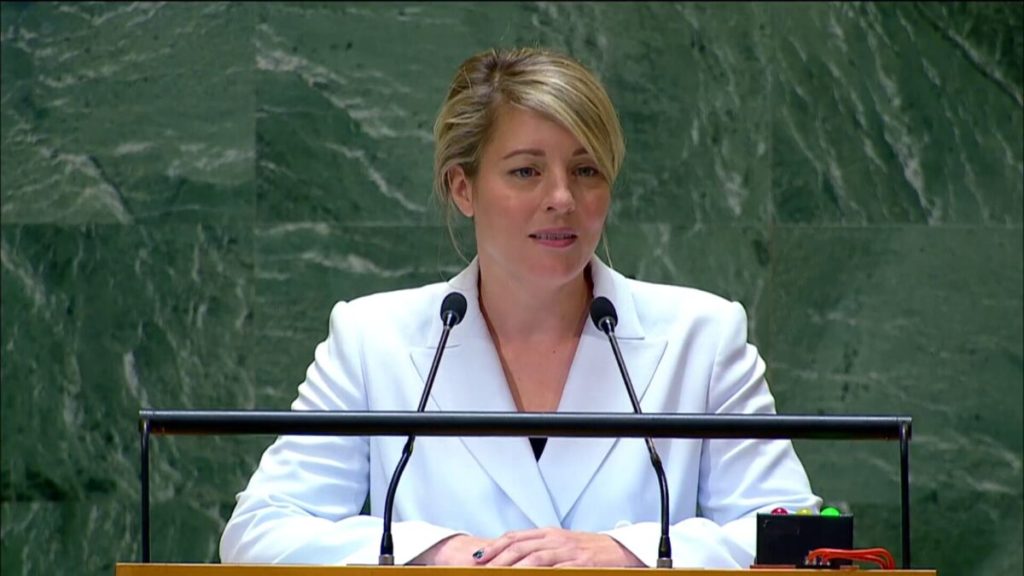NEW YORK CITY: Canada’s Foreign Minister, Mélanie Joly, has called on the international community to hold the Taliban accountable for their systematic oppression of women and girls in Afghanistan.
Addressing the 79th session of the United Nations General Assembly, Joly condemned the Taliban’s increasingly restrictive policies, which have barred women from public life and denied girls access to education. “The Taliban continue to impose inhumane rules against women and girls, making them invisible and robbing young girls of their fundamental right to an education,” she stated. “How is that respecting human dignity? They need to be held accountable.”
During her remarks, Joly announced that Canada, along with Australia, Germany, and the Netherlands, is taking steps to hold Afghanistan accountable under the Convention on the Elimination of All Forms of Discrimination Against Women (CEDAW). This initiative, supported by 22 other countries, aims to use international legal mechanisms to pressure the Taliban to reverse their harsh policies.
Since seizing power in August 2021, the Taliban have implemented sweeping restrictions on women’s rights, including barring them from most jobs, denying access to higher education, and severely limiting their freedom of movement. These measures have drawn widespread condemnation, yet efforts to engage the Taliban on human rights issues have yielded little progress.
“Canada values freedom from oppression, not the freedom to thirst,” Joly remarked, emphasizing that protecting the basic rights and dignity of women should not be controversial.
The initiative led by Canada and its allies comes as the international community struggles to effectively respond to the Taliban’s rollback of women’s rights. Human rights advocates warn that conditions for Afghan women and girls are deteriorating rapidly, calling for stronger global action.
While the Taliban assert that their policies are in line with their interpretation of Islamic law, critics argue that these restrictions have further isolated the regime internationally. Joly’s comments reflect growing frustration among Western nations regarding the lack of progress in addressing the humanitarian and rights crises in Afghanistan.
“We see it around the world when groups or countries assert that international law doesn’t apply to them,” Joly said, emphasizing that the Taliban cannot simply disregard international law through decrees.
This call for accountability has been welcomed by various women’s rights movements in Afghanistan, viewing the initiative as a crucial step toward holding the Taliban responsible for their ongoing violations of rights.


